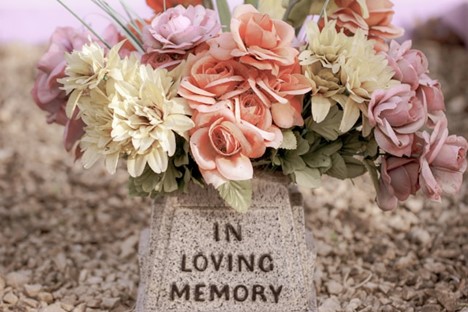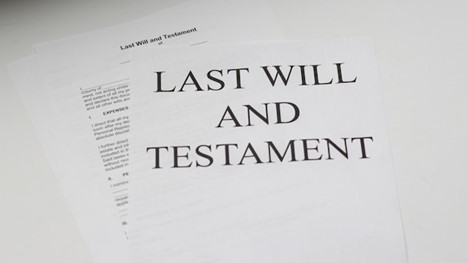No one relishes the thought of contemplating the end of life, but planning for it is a crucial responsibility that ensures your wishes are respected and your loved ones are cared for. One essential element is creating a will with the help of an estate attorney. A will is a legal document that specifies how your assets will be distributed, who will care for any minor children, and your other final wishes. However, what happens if you pass away without a will?
When someone dies without a will, this is known as dying “intestate.” The consequences of intestacy can be complex and, in many cases, devastating for the loved ones left behind. Without a will, the state steps in to determine how your assets are distributed, who will care for your dependents, and how debts are settled. Here’s an in-depth look at what happens when someone dies without a will and the potential legal and emotional complexities that may arise.
State Law Governs Asset Distribution
If you die without a will, your assets will be distributed according to the intestacy laws of the state where you lived. These laws vary by state, but in most cases, they follow a hierarchy of relatives. Typically, your spouse and children are given priority. If you are unmarried or have no children, the state will look further down the line to parents, siblings, and more distant relatives.
The order of inheritance generally follows this pattern:
Spouse: In most states, a surviving spouse will inherit a significant portion, if not all, of the estate. However, this depends on whether you have children or other descendants.
Children: If you have children, the estate may be split between your spouse and children. If your spouse has already passed away, your children typically inherit everything.
Parents and Siblings: If you die without a spouse or children, your parents and siblings may inherit your assets.
Dividing the Estate
Let’s say you die intestate and leave behind a spouse and two children. Without a will, the state might divide your assets between them. Your spouse could receive half of your estate, while your children might receive the remaining half, divided equally between them. This division could cause financial strain if the surviving spouse was relying on the entire estate for support or to maintain a family home.
Complications for Unmarried Partners
One of the most significant drawbacks of dying without a will is the exclusion of unmarried partners. In most states, intestacy laws do not recognize romantic relationships unless you are legally married. This means that if you have a long-term partner, they are not entitled to inherit any part of your estate unless specified in a will.
Without a will, your partner could be left with nothing, even if you shared a home or bank accounts. Some states would prioritize blood relatives over the person you may have spent your life with, creating not only financial hardship for your partner but also emotional turmoil as they grapple with the loss.
Guardianship of Minor Children
One of the most critical decisions that a will can address is the guardianship of minor children. Without proper legal documentation, the court will appoint a guardian for your children, based on what it determines to be in their best interest. The court may select a family member, but it could also appoint someone you wouldn’t have chosen to care for your children.
Without a clear indication of your wishes, your family may face additional stress as they try to determine who is best suited to take on the responsibility of raising your children. Disputes among relatives about guardianship can prolong the process, creating further instability for your children during an already difficult time.
Potential for Family Conflict
Dying intestate often leads to disputes among surviving family members. Without clear instructions on how you wanted your estate divided, family members may disagree on how to distribute your assets or who should be responsible for managing them. These disagreements can escalate into long, costly legal battles, further draining the estate and causing emotional stress.
For example, siblings might argue over who gets sentimental family heirlooms, or distant relatives may come forward to claim a share of your estate. The more valuable or complex the estate, the higher the potential for conflict.
Probate Process
Regardless of whether you have a will, your estate will go through probate — a court-supervised process that ensures your debts are paid and your assets are distributed. However, without a will, the probate process can become even more complicated.
The court will appoint an administrator to manage the estate, which may not be the person you would have chosen. This administrator is then tasked with paying off debts, managing estate taxes, and distributing the remaining assets according to the state’s intestacy laws. The probate process for intestate estates can take longer, especially if disputes arise among heirs, further delaying the distribution of assets.
Higher Estate Taxes
Without proper planning, dying intestate can also expose your estate to higher taxes. A well-constructed will often includes tax-saving strategies, such as establishing trusts or gifting assets during your lifetime. When these measures aren’t in place, a larger portion of your estate may be subject to estate taxes, reducing the amount left for your beneficiaries.
Stepchildren and Non-Blood Relatives Are Excluded
Intestacy laws typically prioritize blood relatives, meaning that stepchildren, foster children, or close friends may be excluded from inheriting anything from your estate unless they are legally adopted or specifically mentioned in a will. If you have stepchildren you wish to leave assets to, it’s critical to create a will that reflects your intentions.
Avoiding Intestacy and Ensuring Your Wishes
Dying without a will can have unintended consequences that leave your family in financial and emotional distress. State laws may not align with your wishes, and your loved ones could face prolonged legal battles, guardianship disputes, and complicated probate processes.
Creating a will ensures that your estate is handled according to your preferences, giving you peace of mind that your loved ones are cared for, and your assets are distributed as you see fit. It’s an essential part of estate planning and a crucial step in protecting your family’s future.
Don’t wait until it’s too late — take the time to create a will and avoid the pitfalls of dying intestate.


